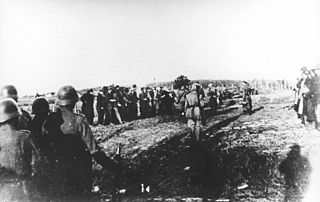 W
WThe 2011 Bulgaria antiziganist (anti-Gypsy) protests started during the night of 23 to 24 September 2011 in the village Katunitsa and later spread to other locations all over the country, including Plovdiv, Sofia, Varna, Burgas, Pleven, Ruse, Pazardzhik, Stara Zagora and others. The reason for the unrest was the murder of a local youth, who was run over by a car by the close associate of local Roma boss Kiril Rashkov. These protests were accompanied with racist chants and called for violence against Romani. The riots in Katunitsa led to the burning of two cars and four houses, owned by different members of the family of the alleged Romani crime boss Kiril Rashkov, also known as "Tsar Kiro". The United Nations and the OSCE condemned the demonstrations and the violence.
 W
WThe Egyptians Act 1530 was an Act passed by the Parliament of England in 1531 to expel the "outlandish people calling themselves Egyptians", meaning Gypsies. It was repealed by the Repeal of Obsolete Statutes Act 1856.
 W
WGaravice was an extermination location established by the Independent State of Croatia during World War II near Bihać, northwest Bosnia and Herzegovina. Between 12,000 and 15,000 people, mostly Serb civilians, were murdered at Garavice by the Ustaše regime in 1941.
 W
WKanižarica is a settlement southwest of the town of Črnomelj in the White Carniola area of southeastern Slovenia. The area is part of the traditional region of Lower Carniola and is now included in the Southeast Slovenia Statistical Region.
 W
WThe Kragujevac massacre was the mass murder of between 2,778 and 2,794 mostly Serb men and boys in Kragujevac by German soldiers on 21 October 1941. It occurred in the German-occupied territory of Serbia during World War II, and came in reprisal for insurgent attacks in the Gornji Milanovac district that resulted in the deaths of 10 German soldiers and the wounding of 26 others. The number of hostages to be shot was calculated as a ratio of 100 hostages executed for every German soldier killed and 50 hostages executed for every German soldier wounded, a formula devised by Adolf Hitler with the intent of suppressing anti-Nazi resistance in Eastern Europe.
 W
WThe Mława riot, or Mława incident, or Mława pogrom, was a series of violent devastations and looting incidents on 26–27 June 1991 when a group of youth estimated at 200 individuals, including young females, invaded the homes of Roma residents of the Polish town of Mława causing them to flee. Not a single Roma person was injured in the riot, but the material losses were substantial affecting up to 40% of residences. Many perpetrators were arrested on-site; a number of them sentenced to jail after a trial. The violence was described as motivated by racism and jealousy. The incident that triggered the riot was the killing of a Polish pedestrian struck along with his companion in a hit-and-run by a Romani male driver.
 W
WThe racial policy of Nazi Germany was a set of policies and laws implemented in Nazi Germany (1933–45) based on a specific racist doctrine asserting the superiority of the Aryan race, which claimed scientific legitimacy. This was combined with a eugenics programme that aimed for racial hygiene by compulsory sterilization and extermination of those who they saw as Untermenschen ("sub-humans"), which culminated in the Holocaust.
 W
WFrom August 22 to August 24, 1992 violent xenophobic riots took place in the Lichtenhagen district of Rostock, Germany; these were the worst mob attacks against migrants in postwar Germany. Stones and petrol bombs were thrown at an apartment block where asylum seekers lived, but no one was killed. At the height of the riots, several hundred militant right-wing extremists were involved, and about 3,000 neighbourhood onlookers stood by, applauding them.
 W
WThe Romani genocide or the Romani Holocaust—also known as the Porajmos, the Pharrajimos, and the Samudaripen —was the effort by Nazi Germany and its World War II allies to commit ethnic cleansing and eventually genocide against Europe's Romani people.